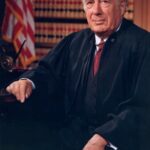JUSTICE O'CONNOR, with whom THE CHIEF JUSTICE joins, concurring in part.
I join Parts I, III, and IV of the majority opinion and the judgment of the Court. Our previous cases concerning the qualified immunity doctrine indicate that a defendant official whose conduct did not violate clearly established legal norms is entitled to avoid trial. Davis v. Scherer, 468 U. S. 183 (1984); Harlow v. Fitzgerald, 457 U. S. 800, 457 U. S. 815 -819 (1982). This entitlement is analogous to the right to avoid trial protected by absolute immunity or by the Double Jeopardy Clause. Where the district court rejects claims that official immunity or double jeopardy preclude trial, the special nature of the asserted right justifies immediate review. The very purpose of such immunities is to protect the defendant from the burdens of trial, and the right will be irretrievably lost if its denial is not immediately appealable. See Helstoski v. Meanor, 442 U. S. 500, 442 U. S. 506 -508 (1979); Abney v. United States, 431 U. S. 651, 431 U. S. 660 -662 (1977). I agree that the District Court's denial of qualified immunity comes within the small class of interlocutory orders appealable under Cohen v. Beneficial Industrial Loan Corp., 337 U. S. 541 (1949).
Because I also agree that the District Court erred in holding that petitioner's authorization of the wiretaps in 1970 violated legal rights that were clearly established at the time, I concur in the judgment of the Court. The conclusion that petitioner is entitled to qualified immunity is sufficient to resolve this case, and therefore I would not reach the issue whether the Attorney General may claim absolute immunity when he acts to prevent a threat to national security. Accordingly, I decline to join Parts II and V of the Court's opinion.

